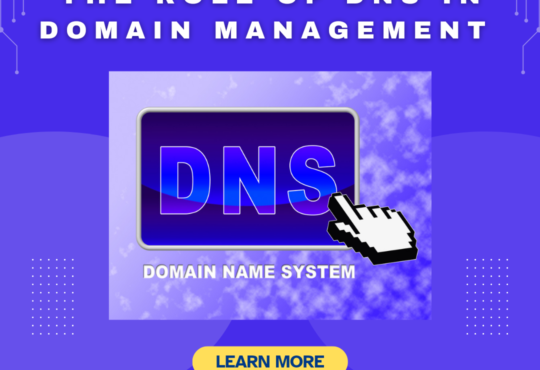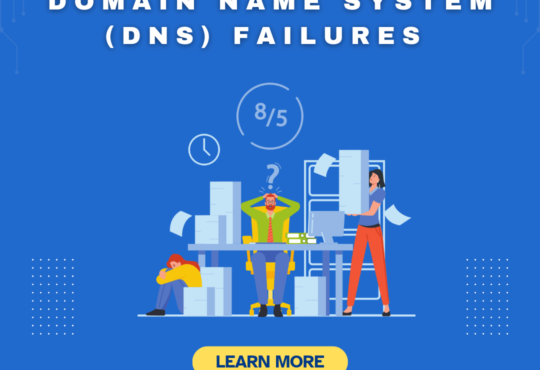
Blockchain Domains
The internet has become an integral part of our daily lives, with domain names serving as the primary gateway to access information and services online. Traditionally, centralized entities manage domain names, leading to issues like censorship, security vulnerabilities, and high costs. However, blockchain technology is poised to revolutionize the domain name system, offering a decentralized, secure, and cost-effective alternative. In this article, we delve into the world of blockchain domains, exploring what they are, how they work, their benefits, potential use cases, and the challenges they face.
What Are Blockchain Domains?
These domains leverage blockchain technology to offer a decentralized approach to domain registration and management. Unlike traditional domains overseen by organizations like the Internet Corporation for Assigned Names and Numbers (ICANN), blockchain-based domains operate on a decentralized ledger. This structure makes them resistant to censorship and fraud.
The information resides on a blockchain, such as Ethereum or Zilliqa, and is managed through smart contracts. These smart contracts automate the processes of registration, renewal, and transfer, eliminating the need for intermediaries and reducing the risk of human error.
How Does Blockchain Domains Work?
To understand their functioning, it’s essential to compare them to the traditional domain name system (DNS):
1. Registration: In the traditional DNS, users register domain names through domain registrars, who act as intermediaries between the user and the central registry. In contrast, users register domains directly on the blockchain through decentralized applications (dApps) provided by blockchain-based registries like Unstoppable Domains or the Ethereum Name Service (ENS). This direct registration process ensures that users have full control over their domain names.
2. Ownership: Once a user registers a domain on the blockchain, their digital wallet stores it as a non-fungible token (NFT). This NFT represents ownership of the domain, and the user has complete control over it. Unlike traditional domains, which require periodic renewal and can be taken away if not renewed, blockchain-based domains provide permanent ownership without renewal fees.
3. Resolution: Traditional domains use the DNS to resolve domain names to their corresponding IP addresses. Blockchain domains use smart contracts to achieve the same result. When a user enters a blockchain domain in their browser, the smart contract retrieves the associated IP address or resource, enabling access to the website or service.
Benefits of Using Blockchain Domains
These domains offer several advantages over traditional domain names, including:
1. Decentralization: By eliminating centralized control, they reduce the risk of censorship and provide users with greater freedom and autonomy. This decentralization also makes the domain name system more resilient to attacks and failures.
2. Security: Domains on a blockchain reside on an immutable ledger, making them highly secure and resistant to hacking. Cryptographic keys ensure that only the rightful owner can manage the domain.
3. Permanent Ownership: With blockchain-based domains, users enjoy permanent ownership without renewal fees. Once purchased, the domain remains theirs for life, providing peace of mind and reducing long-term costs.
4. Interoperability: These domains can be used for more than just hosting websites. They can link to cryptocurrency wallets, making transactions simpler and more secure. Additionally, they can serve as digital identities, enhancing privacy and security in online interactions.
Use Cases of Blockchain Domains
Domains on the blockchain have a wide range of applications, including:
1. Web Hosting: They enable decentralized web hosting, ensuring that websites remain accessible even if traditional DNS servers are compromised. This can be particularly valuable for websites that face censorship or need to operate in regions with unreliable internet infrastructure.
2. Cryptocurrency Payments: They simplify cryptocurrency transactions by linking a domain to a wallet address. Instead of sharing a long and complex wallet address, users can share their domain name, making it easier for others to send payments.
3. Digital Identity: These domains can serve as digital identifiers for individuals or businesses. This enhances privacy and security, as users can control what information is associated with their domain and how it is shared.
4. Decentralized Applications (dApps): Domains on the blockchain facilitate the development and deployment of dApps by providing a reliable domain naming system. This can improve user experience and increase the adoption of decentralized technologies.
5. Email Services: They can create decentralized email services, where emails are stored and transmitted securely on the blockchain. This can enhance privacy and reduce the risk of data breaches.
Challenges and Considerations of Blockchain Domains
While these domains offer numerous benefits, they also face several challenges:
1. Adoption: The widespread adoption of these domains is still in its early stages. For blockchain-based domains to become mainstream, there needs to be greater awareness and understanding among users, businesses, and developers.
2. Compatibility: Traditional web browsers and internet infrastructure need to adapt to fully support these domains. While some browsers and extensions have started to integrate blockchain domain resolution, widespread compatibility is still a work in progress.
3. Regulation: The regulatory landscape for blockchain technology is still evolving. Governments and regulatory bodies are grappling with how to address the unique challenges and opportunities presented by these domains. This uncertainty can impact their growth and adoption.
4. User Experience: The user experience for registering and managing domains on the blockchain needs improvement to attract non-technical users. Simplifying the process and providing user-friendly interfaces will be crucial for widespread adoption.
The Future of Blockchain Domains
Despite the challenges, the future of these domains looks promising. As technology advances and more people recognize the benefits of decentralized domain names, adoption is expected to increase. Major technology companies and browser developers are already exploring ways to integrate domain resolution into their platforms, which will significantly boost usability and accessibility.
Moreover, the growing interest in Web3 and decentralized applications will likely drive demand. As more services and platforms transition to decentralized models, blockchain-based domains will play a crucial role in ensuring secure and reliable access.
Conclusion
Blockchain domains represent a significant step towards a decentralized internet. They offer enhanced security, permanent ownership, and new use cases that go beyond traditional domain names. While there are challenges to overcome, the potential for these domains to transform the internet is immense.
As we move towards a more digital future, understanding and leveraging blockchain-based domains will be crucial for individuals and businesses alike. By embracing this innovative technology, we can look forward to a more secure, efficient, and censorship-resistant internet. Blockchain domains are not just a trend; they are a glimpse into the future of how we interact with the web, manage digital identities, and conduct transactions in a decentralized world.



